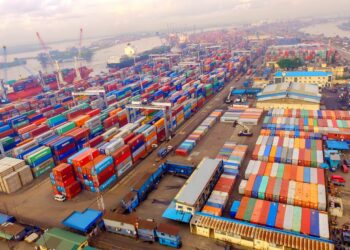The Nigerian telecommunications industry is facing mounting challenges in implementing the Critical National Information Infrastructure (CNII) designation granted by the federal government, as key stakeholders express frustration over the slow pace of enforcement, persistent vandalism, and lack of coordinated action.
Amid growing concerns that the CNII proclamation has yet to translate into tangible protections for vital telecom assets, industry leaders, regulators, and security agencies are set to gather in Lagos to demand urgent, collaborative solutions.
Organised by the Nigeria Information Technology Reporters Association (NITRA) in partnership with the Association of Licensed Telecommunications Operators of Nigeria (ALTON), the forum, scheduled for Thursday, August 7, 2025, at CitiHeight Hotel, Ikeja, is expected to address urgent concerns over how to translate the CNII proclamation into effective protection for Nigeria’s digital backbone.
Themed: “Industry Sustainability and CNII Conference 2025 – Way Forward,” the event will bring together critical voices across the telecom ecosystem, including the minister of communications, Innovation and Digital Economy, telecom operators, infrastructure firms, security agencies, regulators, the media, and private and public sector stakeholders. The core objective is to collectively examine the challenges of enforcing CNII provisions and to formulate workable strategies for securing national telecom infrastructure.
Chairman of ALTON, Engr. Gbenga Adebayo, had earlier underscored the rising incidents of infrastructure theft, ranging from stolen fibre cables and manhole covers to the destruction of base stations, warning that the industry remains vulnerable unless proactive maintenance, regulation, and enforcement mechanisms are adopted. He also cited community resistance to telecom projects and unauthorised installations as persistent barriers that threaten network resilience.
While the CNII status conferred by the federal government acknowledges telecom infrastructure as vital to national security and economic stability, experts said it falls short without clear implementation plans, inter-agency cooperation, and operator-level compliance frameworks. NITRA insists that the mere declaration of CNII is not enough to deter vandalism, sabotage, and other existential threats plaguing the sector.
Speaking ahead of the forum, NITRA chairman, Chike Onwuegbuchi, described the conference as timely and essential. He stressed the need for a multi-stakeholder dialogue to align on the steps necessary for CNII enforcement and the broader goal of industry sustainability. “With the CNII Bill in place, it is now up to stakeholders to come together and determine how best to implement its provisions and ensure full compliance across all levels,” he said.
Similarly, NITRA’s general secretary, Chidiebere Nwankwo, revealed that the event would serve not only as a platform for industry voices but also for public input. “The forum will afford communities the opportunity to speak on infrastructure safety challenges in their localities, especially as they are often first witnesses to vandalism and sabotage,” he noted.
Key questions the forum aims to address include: How can the CNII law be implemented effectively? What roles should the Federal and State Governments play? Are telecom operators aligned with CNII provisions? What is the responsibility of the public in protecting infrastructure? And how do regulators ensure compliance?
Experts argue that achieving real protection of telecom assets will require more than just legislation, it must include widespread public awareness, cross-sector collaboration, and consistent engagement with security operatives and host communities.
According to NITRA, the outcome of the conference is expected to serve as a blueprint for action, one that harmonises government policy with industry realities and sets the tone for future regulatory and operational decisions in the sector.
With digital infrastructure now essential for everything from national defense to public health and financial inclusion, participants say the urgency of the CNII implementation challenge cannot be overstated.





